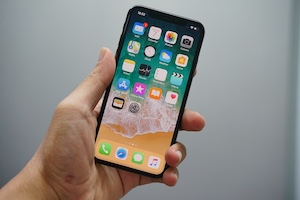South Korea Passes Legislation Supporting School Cell Phone Ban

On August 27, the South Korean National Assembly passed a bill banning students from using mobile phones during class. The law is expected to take effect next semester, beginning in March of next year. Two political parties cooperated to pass the bill, aiming to prevent smartphone addiction among children and adolescents and minimize its impact on academic performance. The bill passed with 163 votes in favor and 115 against.
Previously, countries like Finland and France only imposed phone restrictions in lower-grade schools, while Italy, the Netherlands, and China have implemented broader bans across all schools. Many schools in South Korea had already enacted their own rules, but this new legislation now makes South Korea one of the few countries to formally legislate a ban on student phone use.
Jo Jung-hoon, a lawmaker from the People Power Party who proposed the bill, stated that abundant evidence shows smartphone addiction is extremely harmful to students' brain development and emotional growth. According to statistics from South Korea's Ministry of Education, 37% of middle and high school students believe that social media negatively affects their daily lives, and 22% report feeling anxious when they cannot access it. While the law only prohibits phone use during class, it also gives teachers the authority to restrict phone use throughout the school grounds. Additionally, schools will be required to educate students on the proper use of smart devices.
Despite the new law, opinions among educational groups are divided. The conservative Korean Federation of Teachers' Associations supports the bill, noting that 70% of teachers report being distracted by students using phones during class. They also stated that when students are restricted from using phones, they often react uncontrollably, sometimes verbally lashing out or even becoming physically aggressive.
However, the Korean Teachers and Education Workers Union argues that some of its members believe the law infringes on students' rights to use smartphones.
Due to intense competition surrounding South Korea’s university entrance exam (Suneung), one student told the BBC that he hardly has time to use his phone anyway, as private tutoring and homework often keep him up past midnight. Another student noted that while phone use is banned during class, students still use their phones before and after school, so the restrictions have limited effect. They emphasized that addiction is still possible and criticized the law for merely confiscating phones during class rather than truly teaching students “what to do when they don’t have their phones.”
- 201 reads
Human Rights
Fostering a More Humane World: The 28th Eurasian Economic Summi

Conscience, Hope, and Action: Keys to Global Peace and Sustainability

Ringing FOWPAL’s Peace Bell for the World:Nobel Peace Prize Laureates’ Visions and Actions

Protecting the World’s Cultural Diversity for a Sustainable Future

Puppet Show I International Friendship Day 2020

